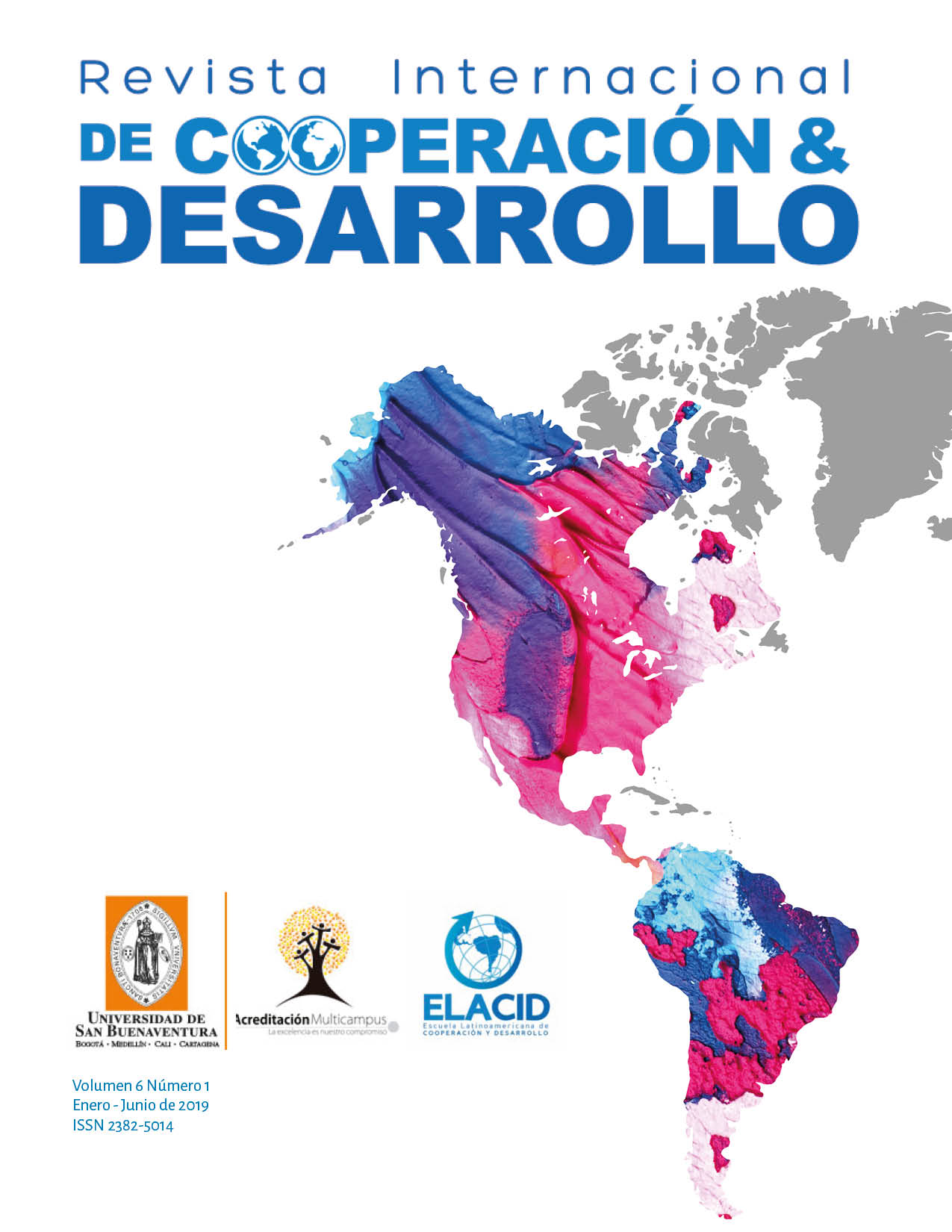INTERNATIONAL JOURNAL OF COOPERATION AND DEVELOPMENT
Assignment of Rights
Authorization for reproduction, publication, communication and distribution of a literary, artistic or scientific
Work.
I , ____________________________________________, author of the book and / or article , of legal age , resident of the city of _________________ , identified with citizenship / passport n° ______________________ issued on _______________________, in exercise of his physical and mental faculties , part henceforth be called the AUTHOR , supports the following authorization to the reproduction, publication, communication and distribution of a work, perform the following terms:
1. Regardless of current legal regulations due to the linking of the parties to this contract, and any kind of legal presumption , the parties agree that the AUTHOR authorize ( name of the publisher ) to reproduce , publish , communicate and distribute the material referred to in the International Journal of Cooperation and Development of the University of San Buenaventura.
2. Such authorization lies in particular on the copyright of the work, by any means known or unknown, publication of the work, distribution of the work , either directly or through third parties for purely educational purposes.
3. AUTHOR agrees to report and declare the existence of this authorization and to preserve the right of the International Journal of Cooperation and Development of the first publication of the work.
4. AUTHOR declares that the article is original and that it is his sole creation, no impediment of any kind exist for the authorization he is doing, besides being responsible for any action claim, plagiarism or other type of claim that might arise about .
5. Such permission is free of charge.
6. Moral copyright in the article are solely the AUTHOR and the University of San Buenaventura expressly agrees to recognize and respect them rigorously.
The Author and / or AUTHORS
SIGNATURE
Abstract
En la actualidad, la lógica de la competencia plena en empresas que buscan desarrollar ventajas apelando al accionar individual resulta insuficiente para responder al dinamismo de los mercados. La cooperación, por su parte, plantea el acceso compartido a recursos y capacidades más allá de los límites de las organizaciones. Así, la cooperación empresarial como modelo de gestión ha demostrado un alto potencial para el crecimiento y la sostenibilidad de los negocios. El propósito de este artículo es analizar cómo está caracterizada la cultura de empresarial en organizaciones del sector de servicios contables y afines en la ciudad de Barraquilla (Col) con respecto a los modelos cooperativos de gestión. Se concluye que, si bien la cooperación es reconocida por su mayor potencial para generar ventajas sostenibles, aún es concebida instrumentalmente y no llega aún a constituir una cultura explícita en las empresas del sector.
References
Aldrich, Howard & Whetten, David. (1981). Organization Sets, Action Sets, and Networks: Making the Most of Simplicity. 385-408.
Alpízar, V. & Maldonado, M. (2009). Integración de la Ruta del Vino en Querétaro, un Producto Innovador. Quivera. Revista de Estudios Territoriales, 11 (2), 97-109.
Ariño, A. (2007). Alianzas estratégicas: opciones para el crecimiento de la empresa. Estrategia Financiera, nº 236. Disponible en: http://pdfs.wke.es/6/8/6/2/pd0000016862.pdf
Benson, Kenneth. (1975). The Interorganizational Network As A Political Economy. Administrative Science Quarterly. 20. 10.2307/2391696.
Child, J., Faulkner, D., & Tallman, S. (2011). Cooperative Strategy. Managing alliances, Networks and Joint Ventures. New York: Oxford University Press.
Contractor, F. & Lorange, P. (2010). Cooperative Strategies in International Business. Lexington Books.
Dyer, J. H. (1996). Specialized Supplier Networks as a Soource of Competitive Advantage: Evidence from the Auto Industry. Strategic Management journal 17(4). 241-92.
Dyer, J. y Kale, P. (2007). Relational Capabilities: Drivers and Implications. In: Dynamic Capabilities. Understanding Strategic Change in Organizations. Blackwell Publishing. Malden (Massachusetts) USA.
Evan, William (1966). Organizational Lag. Human Organization: Spring 1966, Vol. 25, No. 1, pp. 51-53.
Grant, R. M. (1996). Toward a Knowledgw-based Theory of the Firm. Academy of Management Journal 17 (Winter Special Issue). 109-22.
Grueso, M., Gómez, J. H., & Garay, L. (2011). Redes Empresariales E Innovación: El Caso De Una Red Del Sector Cosmético En Bogotá (Colombia). Estudios Gerenciales, 189-203. Junta central de contadores. Conceptos contables. Centro Interamericano Jurídico - Financiero, CIJUF. 2015. Bogotá, D.C.
Gulati, R. (1995). Does Familiarity Breed Trust? The Implications of Repeated Ties for Contractual Choice in Alliances. Academy of Management Journal 38. 85-112.
Moss, P. (1994). Can There Be Validity without Reliability? Educational Researcher, 23(2), 5-12. Retrieved from http://www.jstor.org/stable/1176218.
Nieto, L. & Ramiro, P. (2011). Cooperación empresarial. Observatorio de Multinacionales de América Latina. Disponible en: http://omal.info/spip.php?article4812.
Porter, M. E. (1980). Competitive Strategy: Techniques for Analyzing Industries and Competitors. New York: Free Press,
Quentin, S. J. (2010). Cooperative Advantage. A new measure of performance. National Productivity Review, 69-73
Sánchez, L. & Mungaray, A. (2010). Vino de calidad: Base de desarrollo endógeno en el Valle de Guadalupe, Baja California. Frontera Norte, 22 (44), 109-132.
Sebastián, Jesús (2000). La cultura de la cooperación en la I+D+I. Espacios. Revista venezolana de gestión tecnológica, Caracas, 21(2): 165-180.
Van de Ven A.H. & Ferry, D.L. (1980). Measuring and Assessing Organizations. New York: Wiley.
Yuchtman, E. & Seashore, S. (1967). A System Resource Approach to Organizational Effectiveness. American Sociological Review, 32(6), 891-903. Retrieved from http://www.jstor.org/stable/2092843














